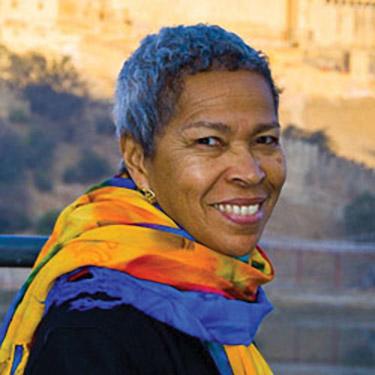Mawrters in the Lone Star State
Their paths crossed through a shared commitment to the African diaspora.

In 1992, cultural anthropologist and filmmaker Sheila Walker ’66 joined the faculty of the University of Texas-Austin, and headed up the Center for African and African-American Studies. A decade later, Walker left UT Austin for a distinguished professorship at Spelman College, just as fellow Mawrter Jennifer Wilks ’95 came on board to teach English, African and African Diaspora studies, and comparative literature. In 2019, Wilks became director of the campus center previously led by Walker.
Sheila Walker '66
Walker: When the University of Texas called out of the blue and said, ‘Would you like to direct this center?’ we started talking about what a center for African and African-American studies could be and I thought this was an opportunity to do things that needed to be done. For example, creating an exchange program with an African university and a conference on the African diaspora. We also created the first Ph.D. program in the anthropology of the African diaspora. I was thrilled when I saw there was another Mawrter now occupying that same position.
Jennifer Wilks '95
Wilks: What brought me to the directorship of the center was the opportunity for programming. I love bringing artists, writers, community leaders to campus because I've seen how students really light up and how they are inspired and challenged when they have a chance to speak with people who are creating the policies or the artworks that they're studying.
Being director of the center is a way of building new skills for our students and conveying the richness and complexity and fullness of African diaspora cultures. There are all sorts of ways to think about, to study, to be in the African diaspora.
Walker: Yes, yes. I organized a conference to which I invited 60 people from more than 20 countries to talk about the African diaspora and its contributions to the creation of the modern world. People said, ‘Where did you find these people? How did you bring all these people together?’ Well, I thought that was my job, that was my responsibility.
Wilks: There are definitely aspects of my Bryn Mawr education that have fed into my academic career. If I think about the friend circle that I’m still in touch with close to 30 years later, its diversity was, is, remarkable. We were from the U.S., Haiti, and Mexico, among other places; from African diasporic, European, and South Asian backgrounds; Christian, Jewish, Muslim, and agnostic. And yet we became friends. Just being exposed to these women from all over and finding that they were also curious about the world and passionate about their respective disciplines was eye-opening and invigorating for me.
Walker: What a difference 30 years makes. At Bryn Mawr I was the only colored girl in my class. What that did for me was make me look for some balance. I wanted to travel, and Bryn Mawr offered me that opportunity in the junior year abroad program. And then I learned about the Experiment in International Living. I chose the Francophone part of Cameroon and got to speak French in real life for the first time in Africa. Those two months, thanks to Bryn Mawr, became my basis for understanding the global African diaspora.
Wilks: The kinship that I feel with Sheila and with many of my Bryn Mawr classmates is that these are women who show me what is possible; that one can learn multiple languages and live in different places and become a valued mentor and scholar and leader in one’s field.
Published on: 01/06/2022